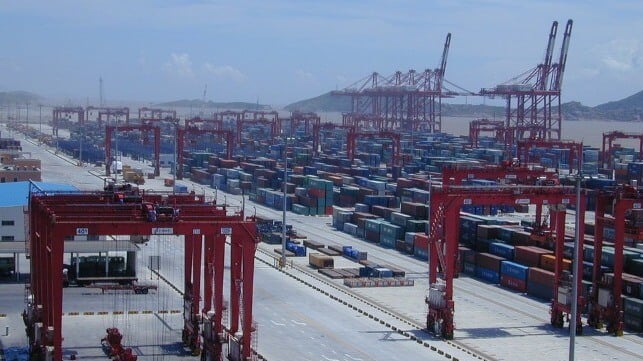Travel
India’s Outbound Surge: Key Drivers Behind the Travel Boom

Skift Take
Several factors are playing in India’s favor as a tourism source market: its population, emerging younger generation, and competition leading to reduced travel costs.
India’s outbound tourism market is expected to reach $55.4 billion by 2034, annual growth of over 11%, according to a new report by Indian commerce body FICCI (Federation of Indian Chambers of Commerce & Industry). The market is projected to reach $18.8 billion in 2024.
A report released by the Organisation for Economic Co-operation and Development (OECD) earlier this month had said that outbound travel from India is emerging as the future growth engine for global tourism. Consulting firm McKinsey and Company said the same in its report, stating that India has a fast-growing pool of first-time tourists.
According to the data from Indian ministry of tourism, the number of departures by Indian nationals in 2023 stood at 28.2 million, surpassing the 2019 pre-pandemic figure of 26.9 million.
The report said that if India were to follow China’s outbound travel trajectory, then travelers could potentially make 80 to 90 million trips a year by 2040.
Travel Spend Trend
India’s new generation of travelers is being lifted by an average GDP growth rate between 6% and 7% a year, leading to increased spending power. This is expected to result in annual growth in travel spending growth of 9% through 2030, the report stated.
Data from India’s central bank showed that Indian travelers reached a new peak in overseas spending – $31.7 billion in the 2024 fiscal year. Of that, $17 billion was spent on international spending, a 25% increase from the year before.
The FICCI report states that Indian tourists are willing to spend up to $7,000 on international trips. Indians are also spending on experiences: this segment makes up 12% of tourism sales.
What is Driving Outbound Tourism?
The report highlights the factors that are driving outbound tourism in India:
- The emergence of online travel agencies and booking platforms.
- An increase in personal income levels and changing lifestyles among consumer classes, combined with affordable airfares and varying travel packages.
- Friends and relatives: “Additionally, India’s 30 million-strong diaspora and international student base serve as a pull factor for those visiting friends and relatives (VFR),” the report added.
- Travel is also being perceived as a demonstration of success. “The status offered by travel varies by destination. Travel within Asia is considered the first threshold, while out-of-region travel exudes greater clout, including travel to countries in North America, Europe, and, to a slightly lesser extent, Australia.”
- Improved aviation connectivity, both in and out of India, is also making travel more convenient. Between 2014 and 2023, the number of airports within India surged from 74 to 149.
- Social media is also changing the way people plan their trips, and has now become a key part of travel companies’ marketing strategy.
Apart from this, destinations and online travel agencies are also bringing onboard celebrities as brand ambassadors to promote their products and services among India fans. While Goibibo has brought in actor Kareena Kapoor Khan as the brand ambassador, former India cricket team captain Mahendra Singh Dhoni was on-boarded as Cleartrip’s brand ambassador earlier this year.










